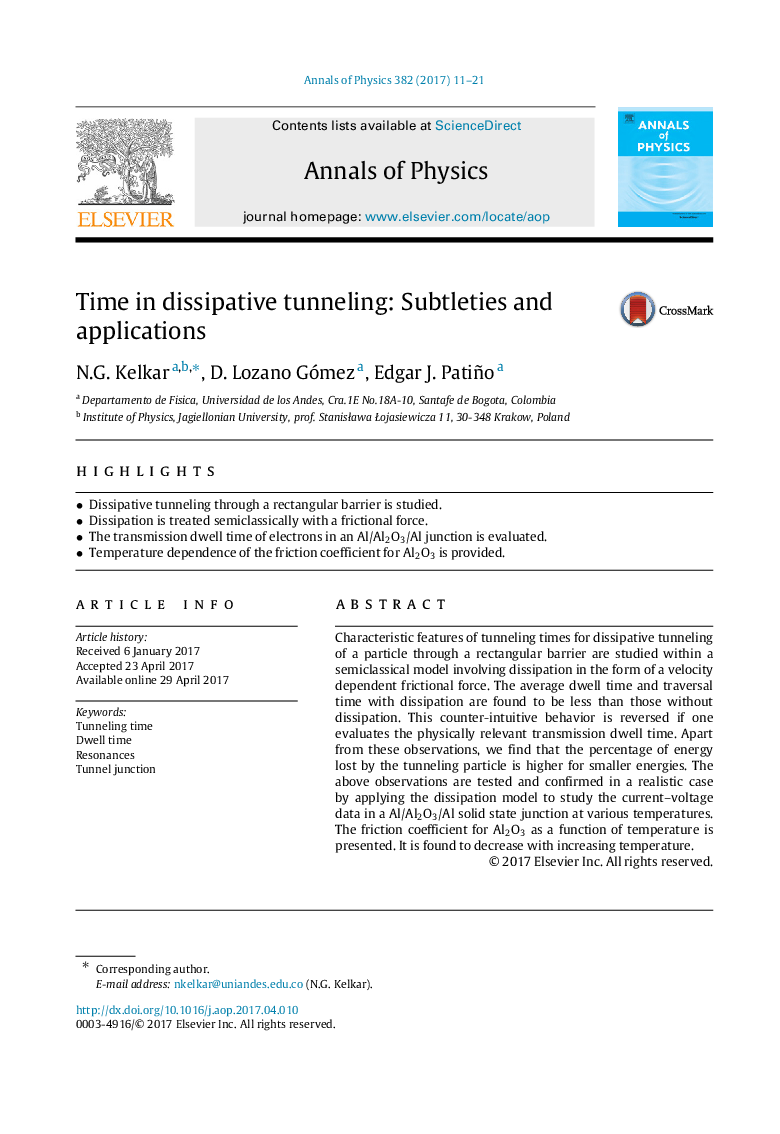| Article ID | Journal | Published Year | Pages | File Type |
|---|---|---|---|---|
| 5495933 | Annals of Physics | 2017 | 11 Pages |
Abstract
Characteristic features of tunneling times for dissipative tunneling of a particle through a rectangular barrier are studied within a semiclassical model involving dissipation in the form of a velocity dependent frictional force. The average dwell time and traversal time with dissipation are found to be less than those without dissipation. This counter-intuitive behavior is reversed if one evaluates the physically relevant transmission dwell time. Apart from these observations, we find that the percentage of energy lost by the tunneling particle is higher for smaller energies. The above observations are tested and confirmed in a realistic case by applying the dissipation model to study the current-voltage data in a Al/Al2O3/Al solid state junction at various temperatures. The friction coefficient for Al2O3 as a function of temperature is presented. It is found to decrease with increasing temperature.
Related Topics
Physical Sciences and Engineering
Physics and Astronomy
Physics and Astronomy (General)
Authors
N.G. Kelkar, D. Lozano Gómez, Edgar J. Patiño,
